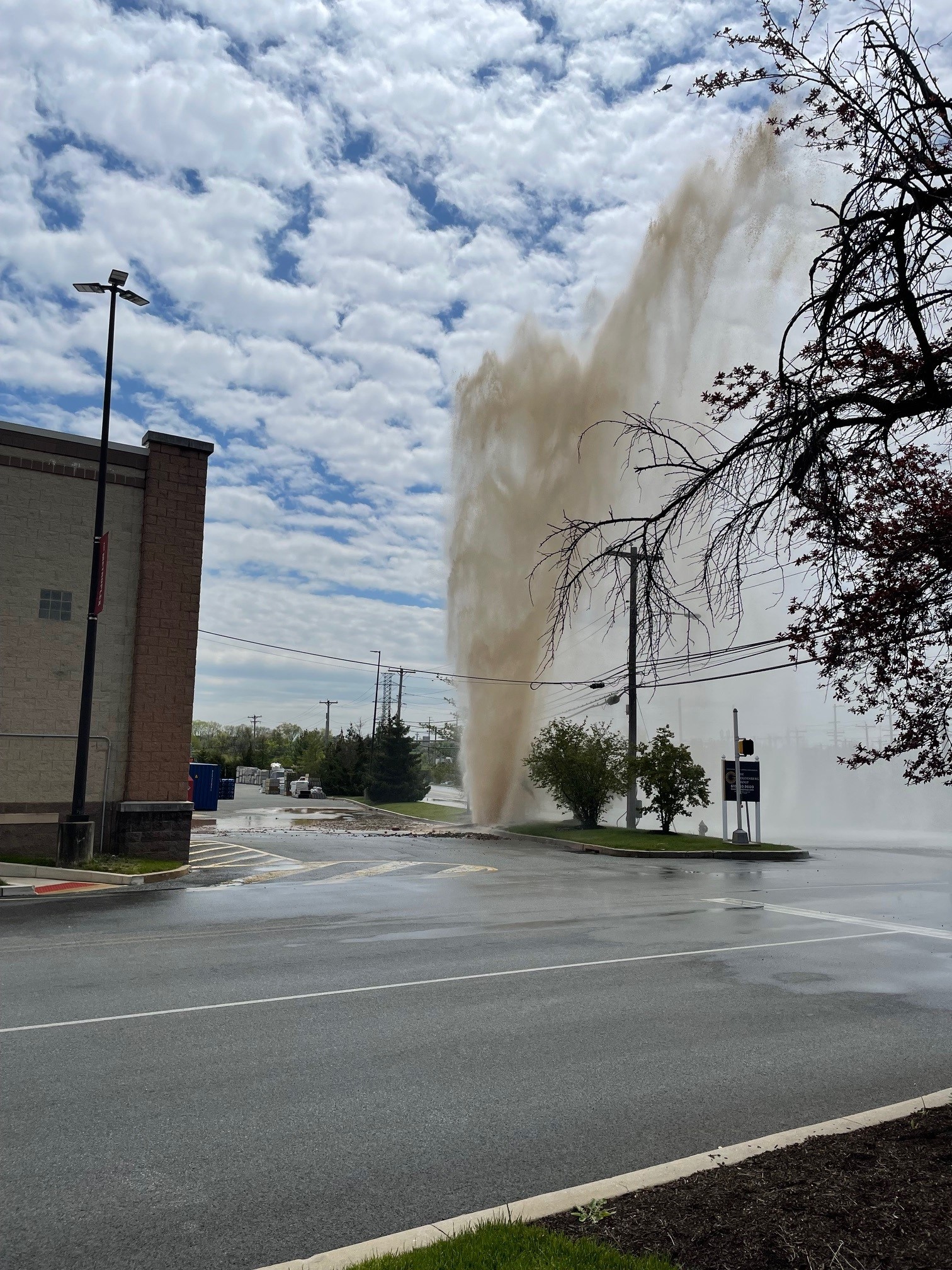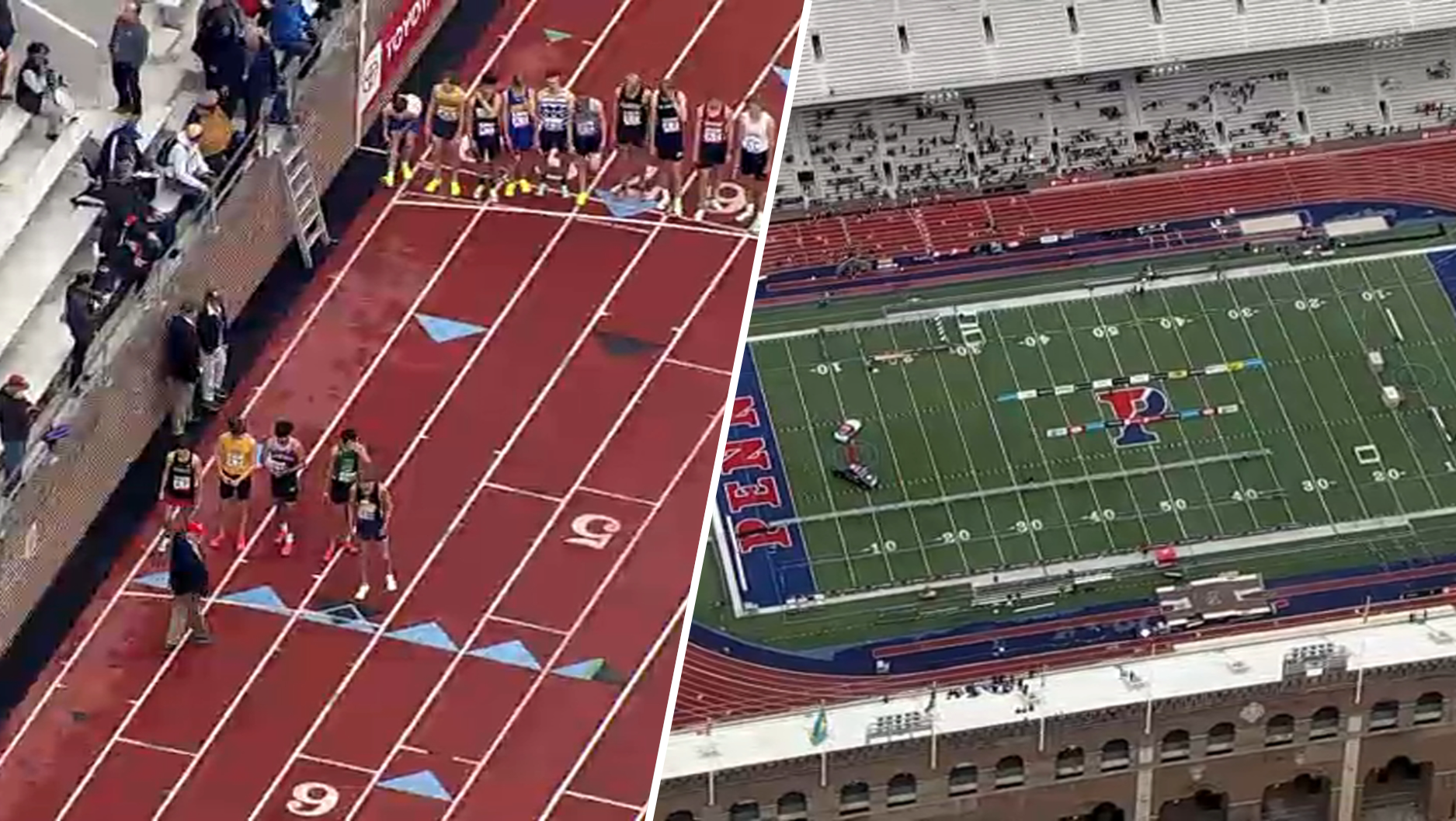Editor's Note: This is the second in a three-part series by NBC10 that looks back at the year that was 2021 in the Philadelphia region. Part 1 on "Rewatchable Moments" can be found here. Part 3 on "Arrivals and Departures" can be found here.
Lee esta historia en español aquí.
As the world continually adapts to a pandemic that has raged for nearly two years, the Philadelphia region is changing with it – and the year 2021 was no exception.
Things looked a lot different this year compared to 2020, and while COVID-19 remained top of mind, there was room for other changes. Some, like permanent outdoor dining and a ban on single-use plastic bags, may seem trivial now, but they’ll reshape daily life for years to come. Others, like a ban on police traffic stops for minor infractions, could be a step toward a more racially just system of crime and punishment.
Get Philly local news, weather forecasts, sports and entertainment stories to your inbox. Sign up for NBC Philadelphia newsletters.
Below are some of the biggest shifts we saw in 2021:
The Great Resignation

The pandemic has reshaped not just where and how people work but also which jobs they’re willing to take – and which salaries they’re willing to accept.
Local
Breaking news and the stories that matter to your neighborhood.
While the most recent data from the Bureau of Labor Statistics show a net employment gain of 5.7 million between Oct. 2020 and Oct. 2021, roughly 4 million people quit their jobs during each of the bureau’s reporting period for this year. Experts have dubbed the phenomenon the “Great Resignation.”
Economists say the numbers reflect the increased power of workers to leverage a tight labor market for higher pay or better working conditions as employers struggle to fill jobs.
Indeed, data from the Federal Reserve Bank of Atlanta show that, since late 2010, people who switch jobs have consistently garnered bigger wage gains than people who have stayed at the same job, a trend that has continued through the COVID-19 pandemic.
Permanent Outdoor Dining
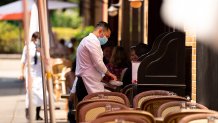
Who wants to sit outside in the elements to eat their food? Apparently, a lot of people.
While outdoor dining initially seemed a temporary alternative that would allow people to gather and eat with loved ones with less risk of infection during the pandemic, it quickly caught on as a legitimately enjoyable dining experience.
In Philadelphia, leaders codified “streeteries” as a permanent option in some parts of the city, including Center City, East Passyunk and Old City.
“With the emergency approvals expiring at the end of 2021, we need to establish legislation that would continue this great city amenity that we’ve enjoyed as a result of the pandemic,” Councilmember Alan Domb, who introduced the legislation, said in a written statement announcing his proposal. He noted that outdoor dining allowed restaurants keep their doors open during the pandemic while “continuing to overcome the challenges with maintaining a safe and healthy environment.”
No More Traffic Stops for Minor Infractions

In an effort to reduce potentially deadly interactions between people and law enforcement, Philadelphia became the biggest government in the U.S. to ban police officers from stopping motorists for minor offenses.
Critics say so-called pretextual stops – like improperly displayed registration or inspection stickers, and single broken taillights – disproportionately affect Black and Latino people.
The Defender Association of Philadelphia projected that the enforcement change could mean as many as 300,000 fewer police encounters a year.
The Plastic Bag Ban That Wasn’t, But Now Is ... Sort of
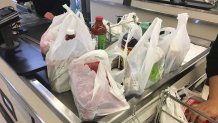
It was passed in 2019 and it won’t be fully enforced until 2022, but Philadelphia finally began its ban of single-use plastic bags in 2021.
The ban, which was delayed due to the COVID-19 pandemic, prevents stores from giving customers single-use plastic bags or non-recyclable paper bags.
“Philadelphia remains committed to advancing our environmental goals, and the ban on single-use plastic bags will be an important step forward to achieve those goals,” Mayor Jim Kenney said in a written statement.
Businesses that are not complying with the ban will only be given a warning through April 1, 2022, at which point full enforcement – meaning fines starting at $75 per violation and possible further action in court – will begin.
Emergence of Delta, Then Omicron in the U.S.
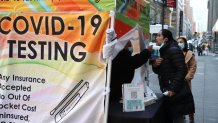
Just as things were beginning to look up, the coronavirus continued its global spread in 2021, producing two variants that have slowed the pandemic recovery in the United States and elsewhere.
The delta variant was first detected in India but quickly reached the U.S., with infections being reported in all 50 states by July. Delta, which causes more severe symptoms and was more transmissible than other variants at the time, quickly became the dominant strain.
An unmasked First Lady Jill Biden, speaking in Philadelphia on Independence Day, declared that “summer has never felt more full of possibility, and doesn’t the air smell so much sweeter without our masks?” referencing guidelines from the Centers for Disease Control and Prevention that indicated fully vaccinated individuals could gather without masks without fear of the large outbreaks experienced in 2020.
But instead, the government was forced to reverse course. For its part, CDC guidance currently indicates people in areas with a high number of COVID-19 infections should “consider wearing a mask in crowded outdoor settings and for activities with close contact with others who are not fully vaccinated.”
Meanwhile, omicron has become another COVID-19 variant that has world leaders, health experts and everyday people on edge.
According to CDC data published Dec. 20, omicron is now the dominant coronavirus strain the U.S. For the week ending Dec. 18, omicron made up 73.2% of sequenced infections in the country, up from just 12.6% the week prior.
While omicron appears to cause milder symptoms than other variants, preliminary research out of South Africa indicates it may also be better at evading vaccines.
The good new is the current three-shot regiment of COVID-19 vaccination is also effective against omicron, Dr. Anthony Fauci, the nation’s leading infectious disease expert said.
The bad news, however, is there are still plenty of unvaccinated people. President Joe Biden has ordered vaccine requirements for millions of workers, but those mandates have faced legal challenges from leaders in Republican-led sates.
Currently, the unvaccinated account for most of the coronavirus infections in the U.S.
Full Return to In-Person School
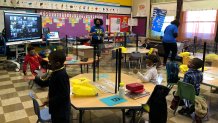
Millions of students in the Philadelphia region had to attend virtual or hybrid learning in 2020 and the beginning of 2021, but that changed this fall.
The CDC laid out masking, physical distancing, hand washing, disinfecting facilities and contact tracing as strategies for a safe return for the fall semester. In Philadelphia, students finally returned in person five days a week starting at the end of August.
However, schools continued to be an ideological battlefield among adults.
While the CDC still recommends universal masking regardless of vaccination status in K-12 schools, conservative activists took up masking as a cause celebre, leading to heated school board meetings across the nation.
In Pennsylvania, the state Supreme Court tossed out a K-12 mask mandate from Gov. Tom Wolf, leaving the decision up to local school districts.
Meanwhile, in an effort to keep schools open, the CDC has endorsed a “test-to-stay” strategy that would allow close contacts of students infected with COVID-19 to remain in classrooms if they test negative.
A More Violent America
For the second year in a row, homicide rates and violent crime reached tragic heights in cities and towns across the United States. Philadelphia had the highest total of slayings in modern history, a grim milestone in a city where residents now describe their own neighborhoods with the term "lawlessness."
Criminologists and historians believe the pandemic years of 2020 and 2021 will be studied by future generations for the large spike in violence. Possible explanations in the short term include: travel and work restrictions, decreases in spending on the poor, jobless and under-educated, a sense among career criminals that law enforcement isn't as punitive, and the ever-rising access to firearms.
“Each and every homicide carries with it a profound sense of loss,“ Philadelphia Police Commissioner Danielle Outlaw said in November. “However, for our City to have reached such a tragic milestone - 500 lives cut short - it carries a weight that is almost impossible to truly comprehend."

